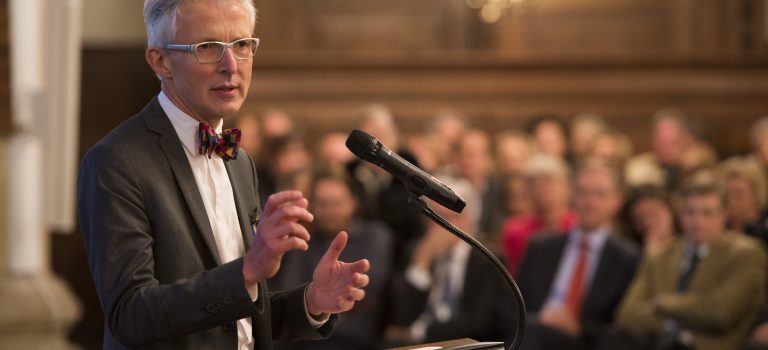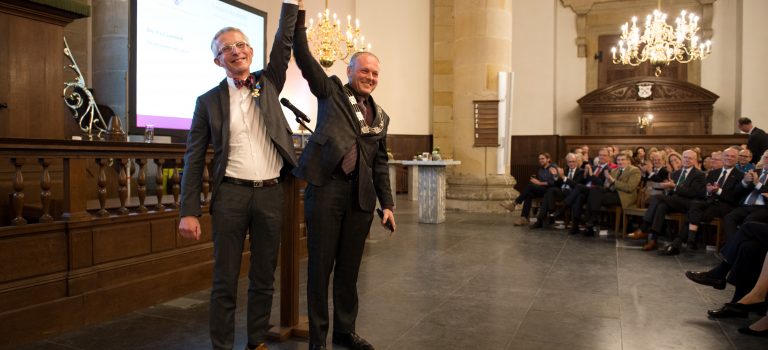Background
The thesis of Frouke Engelaer entails research on the compression and plasticity of old-age mortality during the epidemiologic transition. Studying old-age mortality during the epidemiologic transition is of great importance now that an increasing number of people reach old-age.
Life expectancy has increased all over the world from an average life expectancy of approximately 40 years before the epidemiologic transition to an average life expectancy that exceeds 80 years in post transitional countries today. This major success in improving life expectancy was accompanied by a shift from child to old-age mortality and from infectious to non-infectious diseases. The process of these mortality changes are described in the epidemiologic and demographic transition theories.
Main findings
Overall, when countries shift from a pre- to a post-transitional stage, mortality decreases and an increasing number of people live up to old age. In addition, mortality is compressed to a narrower age interval in which most of the annual deaths occur. This compression of mortality reaches a limit as soon as countries enter the post-transitional era. Furthermore, during the last stage of the epidemiologic transition, with the appearance of ‘diseases of affluence’, we have observed an expansion of morbidity and more years are lived with chronic diseases. By contrast however, life expectancy without disability is increasing parallel to the increase in life expectancy indicating a compression of disability. Due to earlier diagnosis more years are lived with chronic diseases, but this allows for early treatment that in the end postpones or even prevents disability. In general, mortality remains highly plastic up to old age, as indicated by the continuous rise in life expectancy and the shift of the age-at-death distribution towards higher ages.
Implications for society
The plasticity of mortality as we have observed during the epidemiologic transition has resulted in a rising number of people that have the privilege to live up to old age while maintaining good health. However, this trend can only continue when we adapt our society to accommodate our growing population of elderly. This comes with several societal challenges in terms changes in formal and informal care, health care costs and pension policies. Some of the implications will be discussed below.
Dependency ratio
The epidemiologic transition has lead to both low fertility and low mortality, which has resulted in ageing populations, especially in today’s western societies. The age composition in these populations has changed from predominantly young individuals towards an age composition in which the proportion of children, adults and elderly is almost equal. This is one of the most common starting points for policy makers and is often measured as the dependency ratio. This ratio is an age-based indicator for the burden on the productive labour population and is given as the ratio of non-productive per productive individual. Based on the observations in our studies, however, we have several remarks concerning the dependency ratio as a measure for policy makers. First, while the old-age dependency ratio is increasing, one should not overlook that the total dependency ratio is influenced by the youth dependency ratio as well. The latter ratio (0-19 years divided by 20-64 years) has decreased during the last 50 years and will further decline in the future. The old-age dependency ratio (65+ divided by 20-64 years) has increased and is expected to do so in the coming decades. The total dependency ratio however, has not increased, and has in fact slightly decreased. A second reason dependency ratio’s are inaccurate is because it categorizes all people aged 65 years or older as dependent. As it is an indicator based solely on chronological age, it overlooks that not all individuals above age 65 are dependent. Especially as we have shown that with the shift of mortality to higher ages, life expectancy in good health and without disabilities also increases. Policy makers should take this into account when using the total dependency ratio as a starting point for future policies in formal and informal care, health care costs and pension systems.
Health care costs
The average level of long-term care expenditure has been shown to rise with age. It is questionable however, whether population ageing is the major driver of the ever increasing health care expenditure. For instance, it has been shown that health care cost are concentrated in the last year of life. This is in line with our findings of a fixed period of disability at the end of life that cannot be further compressed. This implies that irrespective of how old one gets, the disability burden and the highest health care costs will be in the last year of life. In addition, the demand for health care will be postponed to higher ages. All in all, although higher ages are known to be associated with higher long-term care expenditure, is not the main explanation for the rise in health care costs. Alternatively, there has been an expansion in the use of medical technology during the last decades. These technical innovations have fostered the rise in health care expenditures and hence have played a major role in the overall increase in health care costs.
Pension policies
We have shown that human lifespan is continuously on the rise. This plasticity not only results in longer lives for individuals, but also for more people reaching old age. This has several consequences for many countries that offer their older citizens financial security through pension systems. In a social pension system, financial resources are redistributed from the working population to the retired population. In other words, as the old-age dependency ratio increases, a smaller working population is responsible for a relatively larger retired population. This will become a major burden for pension systems. Although life expectancy and healthy life expectancy are still increasing, many countries still have a relatively early withdrawal from the labour market, at an average age below 60. Increasing pension age not only helps to reduce the burden for pension systems, but it also results in a larger labour force. Most countries however, are hesitant to take the necessary measures in order to achieve this. It is now time to act and make sustainable policies that meet the needs from ageing societies.
Conclusion
Overall, our studies show the plasticity of old-age mortality. There is no indication that we have reached the limits of this plasticity, which is an encouraging finding. Hence, we can be optimistic about the future, but we also have to adapt to the new reality that people live longer and more years are lived in good health.
Leyden Academy
Frouke Engelaer has been part of Leyden Academy on Vitality and Ageing since the foundation. In addition to conducting research at Leyden Academy, she successfully completed the Master Vitality and Ageing and was involved as student assessor.
The management and staff of Leyden Academy wish Frouke good luck in defending her dissertation on Wednesday 10 September, and a promising career, and above all a long, happy and healthy life!

